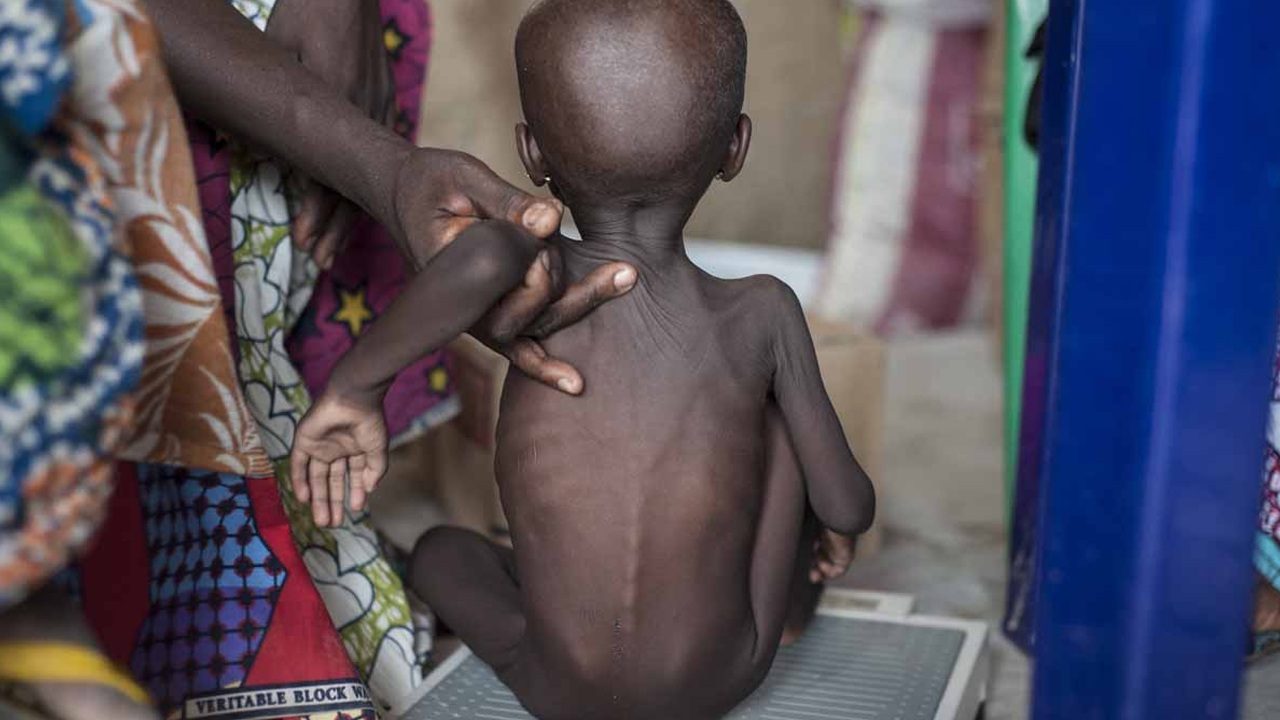Nigeria has been ranked as the second worst-hit country by malnutrition globally, and the most affected in Africa, according to Uju Anwukah, the Senior Special Assistant to the President on Public Health.
This stark revelation was made during the National Summit on Nutrition and Food Security, currently taking place in Abuja.
Anwukah noted that Nigeria’s troubling position on the global malnutrition index is a wake-up call and a national emergency that requires urgent, coordinated action.
Speaking on behalf of the Presidency, she emphasized that malnutrition is no longer just a health issue but a critical development challenge.
According to her, it is a challenge affecting national productivity, education, and long-term economic growth.
The summit, which was convened by the House of Representatives Committee on Food and Nutrition, also featured strong remarks from the Committee Chairman, Hon. Chike Okafor.
Hon. Okafor outlined the massive financial cost of Nigeria’s continued battle with hunger and poor nutrition.
According to Okafor, malnutrition is costing the country an estimated $1.5 billion every year in lost economic productivity and health-related burdens.
Even more striking, Okafor cited data from Nutrition International and the World Bank estimating that the total cost of inaction on nutrition amounts to approximately 12.2% of Nigeria’s Gross National Income (GNI)—equivalent to a staggering $56 billion.
“This economic hemorrhage is unsustainable,” Okafor warned.
“The damage being done is not just to our present but to our future.”
A major contributor to this crisis, he explained, is post-harvest food loss, which the Food and Agriculture Organization (FAO) pegs at $2 billion annually in Nigeria.
This alone surpasses the entire combined nutrition budgets of the Federal Ministries of Agriculture, Health, Education, and Women Affairs.
“It is simply unacceptable,” he said.
“We cannot afford to lose so much food when millions of Nigerians are going to bed hungry.”
In response to the growing crisis, the Presidency has launched the N-774 Nutrition Initiative, a grassroots-focused program aimed at addressing malnutrition in all 774 local government areas across the country.
Anwukah confirmed that the initiative has already been endorsed by the National Council on Food Security and the Nigerian Governors Forum, signaling nationwide support.
She said the N-774 initiative is built to strengthen coordination, localize interventions, and enhance accountability.
According to her, it is doing all of these while involving state and local governments more directly in the fight against malnutrition.
Meanwhile, Okafor emphasized the need for a new approach at both the federal and state levels.
His committee has begun implementing strategic capacity-building sessions designed to deepen lawmakers’ understanding of the complexities surrounding nutrition and food security.
“A wise man once said that if you’re not informed, you’re deformed,” he noted.
“Our goal is to ensure that lawmakers across all 36 states are well-equipped to ask the right questions and propose evidence-based solutions.”
To this end, the committee is working in collaboration with the National Institute for Legislative and Democratic Studies and development partners.
These also include UN agencies and NGOs, to institutionalize this capacity-building process.
“Our mission is clear: more funding for nutrition, and better results from every naira spent,” Okafor said.
“It’s about ensuring not just more money for nutrition, but more nutrition from the money we already have.”
The summit continues to spotlight the importance of multi-sectoral collaboration.
It urges all stakeholders, from federal and state governments to international partners and the private sector, to treat food and nutrition security as a national development priority.
With millions of Nigerian children suffering from stunting, wasting, and other forms of malnutrition, the urgency is undeniable.
If Nigeria is to achieve its sustainable development goals and unlock the potential of its population, experts say nutrition must be placed at the center of the country’s policy and investment agenda.







